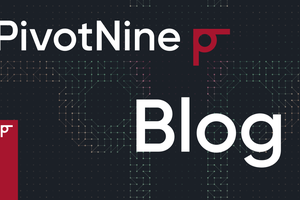Microsoft Makes Clear Play For Mission Critical Cloud
Microsoft is clearly signalling a play for mission critical enterprise workloads with its latest announcements.
Last week, Microsoft announced a new Azure region in Canberra Data Centres' facility in Australia to serve workloads from the Canberra based Australian government.
Cloud providers have been keen to attract lucrative government business. AWS created its GovCloud dedicated region in 2011, and just over a week ago Oracle's Safra Catz reportedly criticised the process the US government was using to award cloud contracts.
“We're globally driven, but locally listening,” said Tom Keane, Microsoft's Head of Global Infrastructure. “Rather than expecting governments to come to our cloud, we're bringing our cloud to the government.”
Microsoft is clearly doing something right, as it has received the Australian Signals Directorate's (the Australian equivalent to the US National Security Agency or the UK's GCHQ) approval to host data classified as Protected. This makes it far easier for Australian government agencies, and the ecosystem that surrounds them, to host data on Microsoft's cloud. It also gives Microsoft a competitive edge over those who have not achieved this level of certification.
“Customers prefer, or need, data to be in-region,” says Mark Russinovich, CTO of Microsoft Azure. This is particularly true when local regulations require data to reside in a particular geopgrahical location. With the advent of new legislation, such as the EU's GDPR, governments worldwide are increasingly keen to ensure that their data is protected according to their own rules, rather than the dictates of foreign governments.
“Azure supports 70 different compliance regimes,” Keane said. “We really focus on customer trust. We have 50 different regions so that customers can store their data where they want it.”
“Microsoft is a trusted brand,” he adds.
Given the desire to keep data in specific locations, I asked Microsoft why they should choose cloud over keeping their systems on their own sites, under their own direct control. “There are some things you just can't do on-site,” Keane says.
“Hyperscale can bring economies of scale, as well as technical capabilities” says Russinovich. He stresses that with complex IT areas like cyber security, “smaller companies don't have the resources to do it this way”.
“Australia is a good cloud market,” said Keane. “There's strong adoption, and strong demand for hyper-scale features for mission critical applications.”
Microsoft is clearly focusing on attracting the highly sensitive workloads of governments, and with them the broader ecosystem of IT providers that support the government. Achieving appropriate certifications to be able to handle classified data is not a small task, and it buys membership to a fairly exclusive, and lucrative, club.
There are also numerous large enterprises that need the similar grade of security and sophistication demanded by government. Proving credibility with government can provide flow-on effects to the rest of the market, as customers look for markers like FIPS certification so they can feel confident their data will stay safe when it's no longer within their own building.
The enterprise is fast becoming the major battleground for cloud business. Enterprises have deep pockets, and while getting millions of individual developers to pay small amounts of money each month can add up to a lot of money, the concentrated buckets of money available from substantial enterprise and government contracts are almost too attractive to ignore. It shouldn't be at all surprising to see the major cloud vendors working very hard to appeal to governments and enterprises around the world.
Of course, Microsoft isn't at all new to dealing with enterprises or governments, so in many respects it could be seen to have a head-start on credibility compared to some of its competitors. Watching this play out over the next few years will be interesting, particularly against the backdrop of increased distrust of foreign entities and a desire for greater control over private data.
This article first appeared in Forbes.com here.
